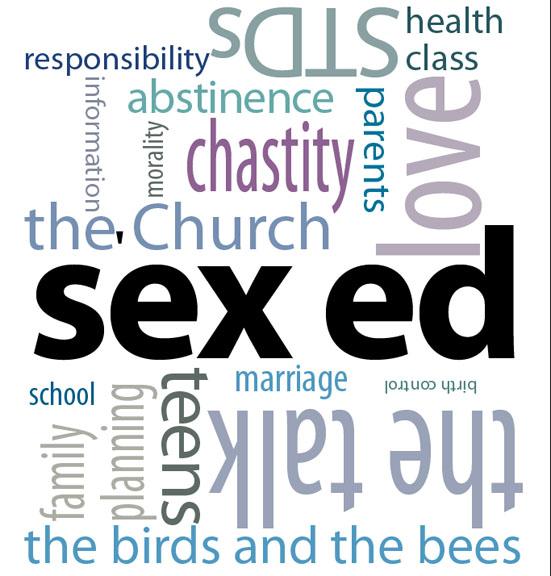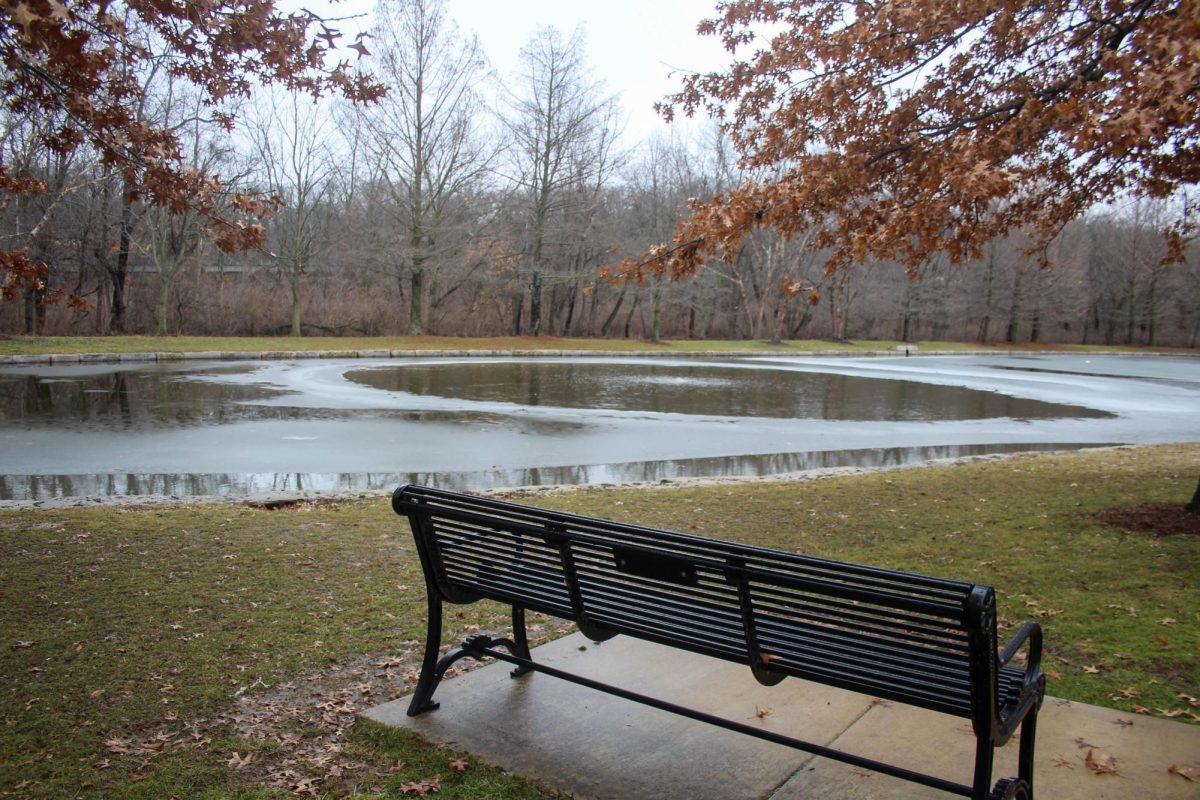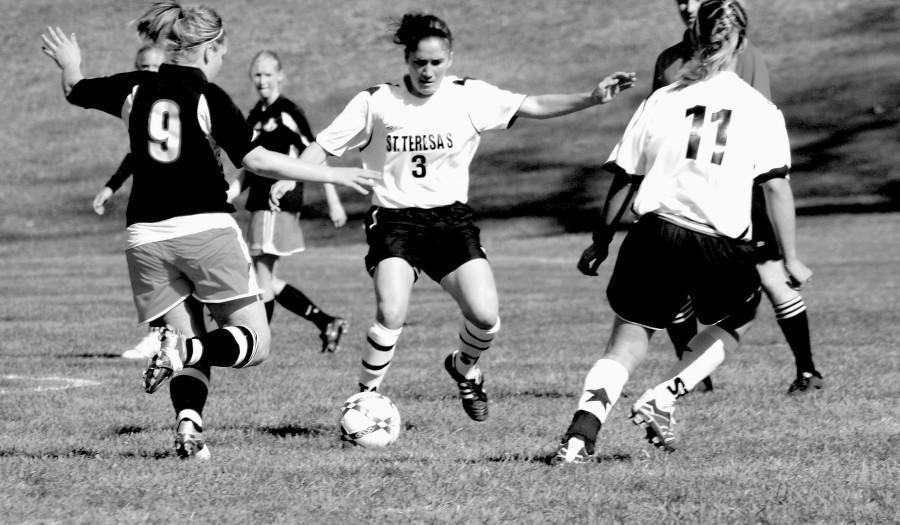by Hannah Wolf
Two weeks ago, at the end of the third quarter, the class of 2015 finished their studies on women’s health as part of the health course at STA. One hundred and fifty two STA girls have completed, ending what may be for many of them their formal sex education.
Within the Catholic community, there remains debate on whose responsibility it is to teach students about sex. As teens continue to face tough decisions regarding sexual activity, where are they getting their information, and what are they learning?
Whether it’s in health class, on “Jersey Shore”, in a Lil’ Wayne song, or from that awkward birds-and-the-bees talk we may have had with our parents, we all learn about sex at some point. The Dart evaluated what Catholic experts believe are the two main sources of STA students sex education: school and parents.
At school, STA students receive sex education primarily their freshmen year in health class. Students learn about STDs, the female reproductive system and the female menstrual cycle. Because of the Catholic beliefs of the school, the teachers may feel restricted from teaching anything more.
In turn, girls must rely on other outlets to learn more, whether it be their friends, the media, or perhaps most importantly, their parents. At home, girls learn the values and morals their parents instill regarding topics of sex. Parents may set rules and standards while educating their daughters. At home, girls receive a more personalized approach to sex education.
In the end, who’s responsibility is it to educate STA girls?
HEALTH CLASS
According to principal for academic affairs Barbara McCormick, a large percentage of sex education in the STA curriculum comes from the health class all freshmen are required to take. Here, McCormick said, the students talk about sexually transmitted diseases (STDs) and the consequences that occur from sex.
In fact, health teacher Stacie O’Rear said “sex education” is not a part of her health class.
“I do not teach ‘sex education’,” O’Rear wrote in an email to the Dart. “My women’s health section contains information on a woman’s reproductive system and the menstrual cycle.”
Freshman Amy O’Leary, a student of O’Rear’s health class, describes what sex education she has received at STA.
“In health class we learn about STDs and how the female body works,” Amy said. “But we never really talk about anything besides STDs you can get and what can happen to you.”
With the current approach, Amy believes that STA is taking the necessary steps as a school.
“They are just telling us more about the effects and diseases of what could happen and allowing us to talk and make our own decisions on when we choose to have sex,” Amy said.
However, Amy’s mother, Lynn O’Leary, while admitting that she doesn’t fully know what her daughter has been taught regarding sex education at STA, questions if this is the best approach.
“By teaching someone about STDs, you’re not getting the full picture,” Lynn said. “That’s teaching fear, not love. It’s not teaching them the whole picture of what it truly means to give of yourself and to love the way God wants us to love.”
According to “Theology of the Body,” a Catholic book promoted as a parent’s guide for teens by Jason Evert, teenagers will not make decisions based on fear of STDs.
“If teens can see the beauty of God’s plan for human love, they will desire it,” Evert writes. “They will not choose His ways out of fear of pregnancy or STDs, but rather because God’s plan for love is everything that the human heart longs for.”
CATHOLIC BELIEFS
So why is STA taking this current approach to sex education?
One reason, according to O’Rear, is because STA is restricted by Catholic beliefs.
“This is a Catholic institution, and we teach in accordance with its teachings,” O’Rear wrote.
McCormick also said that teachers are not allowed to teach anything in disagreement with Catholic beliefs. The Dart also is governed by an editorial policy that limits opinions that contradict Catholic teachings.
“Their contract binds them to the social Catholic teachings,” McCormick said.
However, McCormick doesn’t believe this is a problem.
“It’s not that there is a problem of what we can teach and what we can’t teach,” McCormick said. “I understand that health and wellness is very important, and we do a good job of having it woven into some classes.”
WHAT MORE IS THERE?
According to the Catechism, sexuality “concerns the capacity to love and to procreate, and in a more general way the aptitude for forming bonds of communion with others.”
Catholicism also holds steadfast views on chastity and abstinence before marriage. The Catechism states that “the chaste person maintains the integrity of the powers of life and love placed in him.”
And according to catholiceducation.org, Catholic sex education is primarily “education on chastity.”
Lynn believes that for teens to understand the “true purpose of chastity,” they need to be taught more than just abstinence, but about “formation of conscience” and “what love really means” as well in order to understand the “whole picture.”
“There could be so much more,” Lynn said, who also helps lead meditations in the Chapel every Tuesday and Thursday at STA. “It’s not what [the school] is doing is bad, there is just so much more they could be doing to complete the whole picture, to help our students understand.”
So how could STA go about teaching sex education more thoroughly?
“I think it is the responsibility of the Catholic schools to teach a more thorough program on sexuality and love and getting into materials like theology of the body,” Lynn said.
McCormick understands this concern.
“Is there always room for improvement?” McCormick said. “Sure. But I think we have made good steps in the right direction.”
Lynn believes improvement here could benefit students.
“I think hearing [a more comprehensive] plan presented to them at school would be very beneficial,” Lynn said. “People may not be hearing it at home. I think the students have the right to receive this information and the parent might not be equipped to teach it, so to educate them at school is very important.”
According to Theology of the Body, 40% of teens say they have not had a single conversation about sex with their parents.
Research shows that 91% of adults and 87% of teens think that it would be easier for teens to be abstinent if they could discuss the topic of sexuality with their parent, according to Theology of the Body.
According to the Guttmacher Institute, girls are more likely than boys to talk with their parents about birth control or “how to say no to sex.”
PARENTS’ ROLE
According to catholiceducation.org, the Catholic Church’s traditional teaching about sex education is that it should be “primarily a matter for the parents to impart privately in the home.”
McCormick recognizes the parents’ responsibility to educate their children.
“I think they are a vital role in educating their children,” McCormick said. “Parents are always the first educator of the child.”
O’Rear has kept this in mind while teaching her health class.
“I inform the parents about my women’s health curriculum at Back to School Night and we encourage them to let me know if they have any questions or concerns,” O’Rear wrote. “I encourage them to talk with their daughters and ask them questions, thus hopefully opening up their discussions with each other.”
Amy believes this is a good thing because she would be “more influenced by her parents rather than a teacher.”
“It would be more effective with what my parents would tell me,” Amy said. “I don’t get a lot of talks about it from my teachers, so I have no standards to live up to with them.”
Amy believes she has received “plenty” of education from her parents at home.
“My mom likes to just let me know random facts whenever she feels like I need them,” Amy said. “My mom talks to me when we’re in the car, at home, she’ll just bring up stuff and will ask me how I feel about it.”
Amy said that learning from her parents has been “very effective.”
In fact, research shows that parents are the most influential when it comes to sex education. According to a survey by The National Campaign to Prevent Teen Pregnancy, when asked “What is the number one factor that shapes the decisions teens make about their sexuality?” most parents suspected that it was teenagers’ friends. However, teenagers said that the most influential person was their parents.
Lynn and her husband Terry O’Leary believe they are an important role in educating their children on this.
“Ultimately, it is the parents’ responsibility to teach morals and virtues of the Catholic faith,” Lynn said. “I want to teach my children that they are worth the wait. We’ve got to be there to remind them what true love is.”
“We try to talk about values and virtues with everything, whether it is with handling siblings or relationships, it all just rolls into one holistic view of your faith,” Terry said. “It’s hard, and they’re tough topics. You just have to keep talking about it.”
Lynn understands that this is a hard topic for parents to discuss with their teens.
“I think there’s too many parents that don’t want to talk to their children about sex education,” Lynn said. “So if the kids aren’t hearing enough information at home, then it’s a great asset to have the school.”
JOINT EFFORT
Lynn believes sex education is a “team effort” between parents and STA.
According to catholiceducation.org, the Vatican II Declaration on Education, when discussing where sex education should take place, speaks of the Catholic school as performing its services “as partners of the parents.”
In addition, the Congregation for Catholic Education in Rome said in a document, Educational Guidance in Human Love, that on topics of “modesty, purity, chastity, and morality,” that “the Catholic school…[was] called to collaborate with the family.”
Freshman Lily O’Neill believes that sex education is the responsibility of both parents and STA.
“We get two different points of view about it,” O’Neill said. “From a family member it is more personal, and from STA it is more informative and states the facts.”
Lynn also thinks that these two point of views are a necessity.
“The parent does their part and constantly tries to read more to inform themselves about how to instruct their children,” Lynn said. “The school can offer additional programs, like a class on theology of the body.”
McCormick believes that educating children is a community effort, even when it comes to sex education.
“I would say that this is a community that embraces the Catholic social teaching on these topics and therefore it’s a shared responsibility between parents and teachers to educate their daughters about sex or relationships,” McCormick said. “It is a joint effort. It is the job of parents, teachers, churches and schools to really help students make the right decision.”











